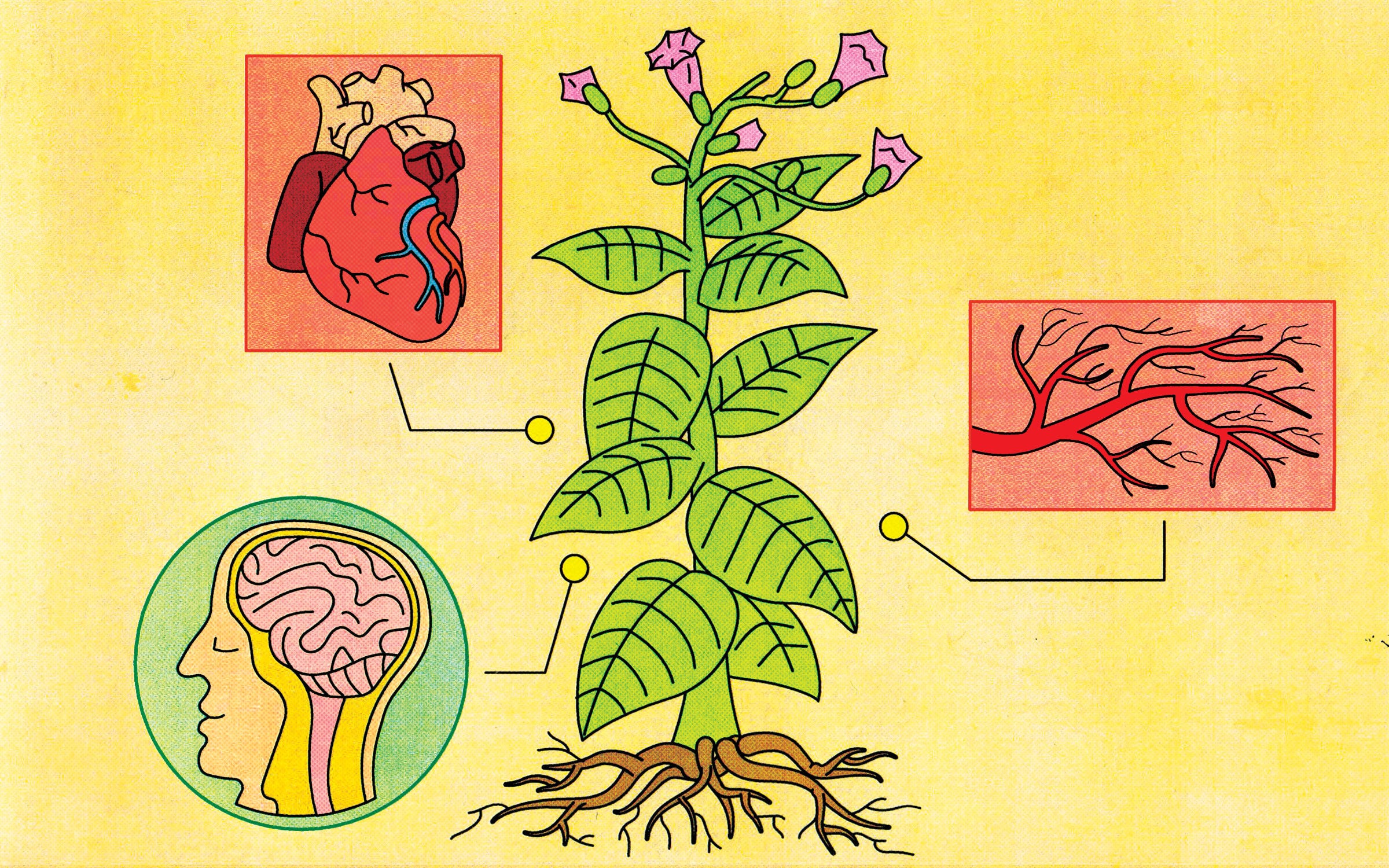The addictive drug can boost your cognition and won’t give you cancer, but that doesn’t mean it’s safe for casual use

 Everyone is talking about the potential harms of vaping, and for good reason. One in four high schoolers report having used an e-cigarette in the past month, a 135% increase from just two years ago. Even more concerning, at least 42 people have died and thousands more have fallen ill from using faulty vape pens, although in most of those cases people were consuming THC.
Everyone is talking about the potential harms of vaping, and for good reason. One in four high schoolers report having used an e-cigarette in the past month, a 135% increase from just two years ago. Even more concerning, at least 42 people have died and thousands more have fallen ill from using faulty vape pens, although in most of those cases people were consuming THC.
With such a focus on the physical concerns around vaping, the main psychoactive ingredient in e-cigarettes, nicotine, is often left out of the conversation. The chemical additives in tobacco cigarettes, and potentially e-cigarettes, too, are obviously bad for you. But what about nicotine itself? It’s mood-boosting and attention-sharpening effects are often cited as the reasons people use these products, so is “pure nicotine” good for you? And is it possible to get the chemical’s benefits from another method (nicotine patches or gum) without any health ramifications? Probably not.
Nicotine is produced by tobacco plants, but it’s also found in trace amounts in vegetables in the nightshade family, like eggplant, cauliflower, potatoes, and tomatoes. The chemical acts as a natural insecticide because of its action as a neurotoxin. In the human brain, nicotine activates nicotinic receptors, but don’t let the name fool you. These receptors did not evolve for nicotine, they’re only named for the drug because that’s how scientists discovered them. The receptors are actually intended for the neurotransmitter acetylcholine, a chemical important for attention, memory, and cognitive processing. Nicotine mimics acetylcholine and fits into the neurotransmitter’s receptor like a key into a lock, resulting in many of the same effects as the natural chemical, but at a much higher rate.

No comments:
Post a Comment